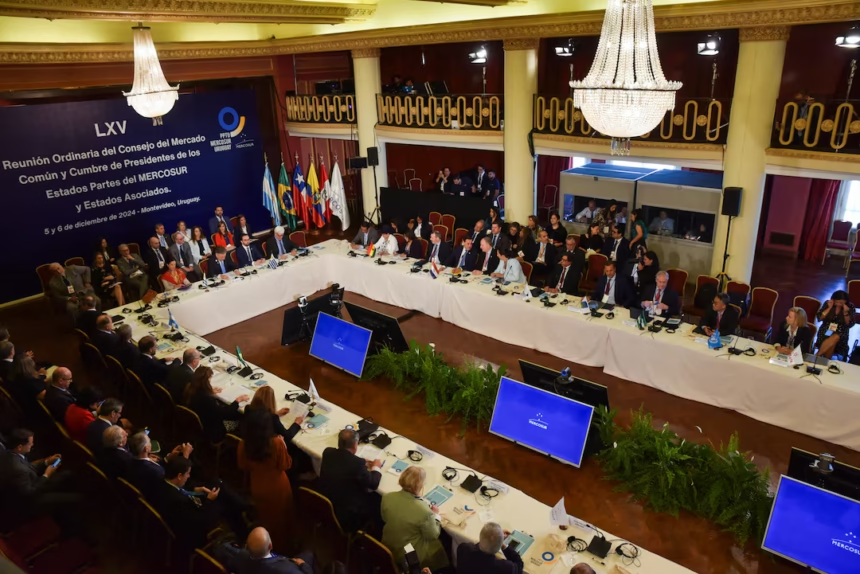European Commission President Ursula von der Leyen landed in Uruguay on Thursday to finalize a long-awaited trade agreement between the European Union (EU) and South America’s Mercosur bloc. The deal, two decades in the making, has faced resistance, particularly from France, but is now nearing completion.
Von der Leyen’s visit comes shortly after the collapse of President Emmanuel Macron’s government following a no-confidence vote over budget deficit control, adding further political tension in France. Despite this, von der Leyen remains focused on pushing the deal forward, which would establish one of the world’s largest trade partnerships and significantly increase trade in beef and grains.
“The finish line of the EU-Mercosur agreement is in sight. Let’s cross it together. The largest trade and investment partnership the world has ever seen will benefit both regions,” von der Leyen stated in a post on X (formerly Twitter).
Mercosur, a trade bloc that includes Brazil, Argentina, Uruguay, and Paraguay, is meeting for a summit in Montevideo where final details on environmental issues and government purchases have been resolved. Sources close to the negotiations confirm the deal is finalized and will be announced by Mercosur leaders and von der Leyen on Friday.
Uruguayan Foreign Minister Omar Paganini confirmed that a “common agreement” had been reached, with von der Leyen’s presence highlighting the success of the talks.
However, the deal faces significant opposition within Europe. French farmers, in particular, have protested, arguing that the agreement will flood the EU market with cheap South American imports like beef, which do not meet EU’s stringent green and food safety standards. France remains the most vocal critic of the deal, with Macron’s office reaffirming that it is “unacceptable” despite the political chaos in the country.
Other EU countries, including Germany and Spain, strongly support the deal, emphasizing its importance for diversifying trade in the wake of Russia’s market closure and Europe’s dependency on China. Spanish Agriculture Minister Luis Planas noted that a successful deal would be a positive signal for exports and Europe’s commitment to global trade.
Supporters of the deal also highlight Mercosur’s role as a potential supplier of critical minerals such as lithium, essential for Europe’s green energy transition. South American negotiators are optimistic that the EU will eventually approve the deal despite French opposition, and that France will not be able to block it.
While the EU still needs to ratify the agreement, both sides are hopeful that the 20-year negotiation process will finally bear fruit.







